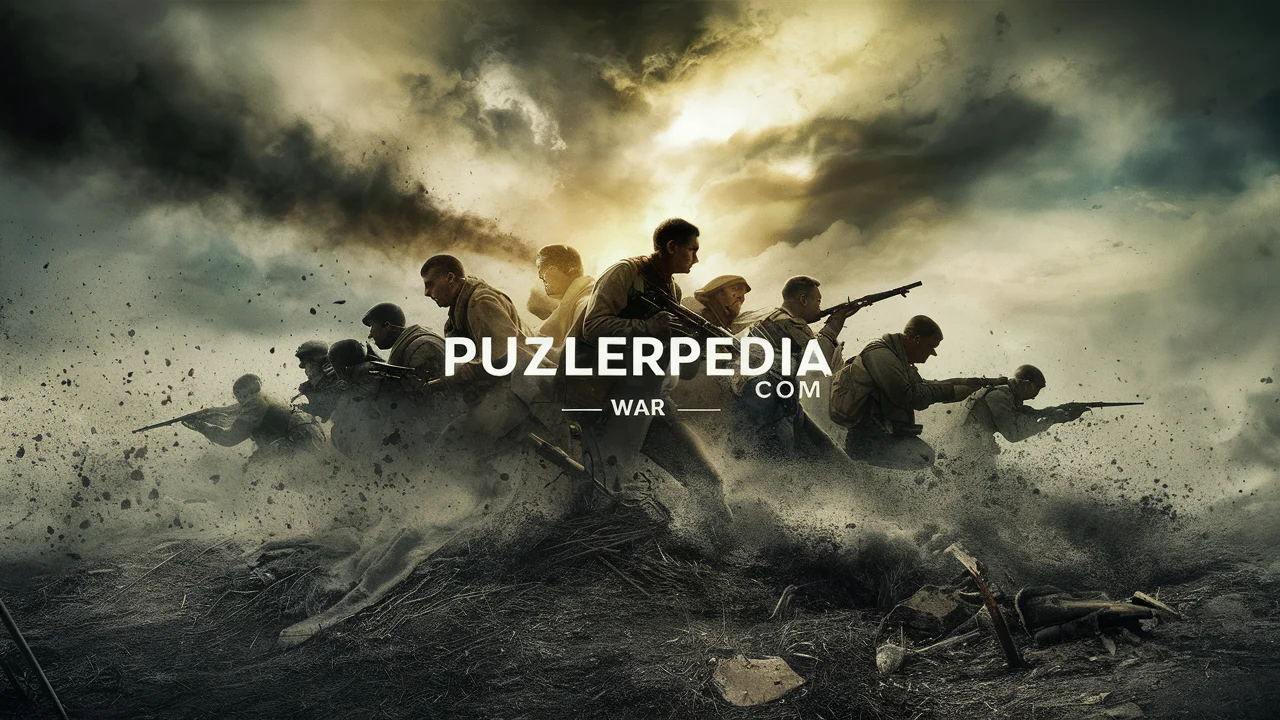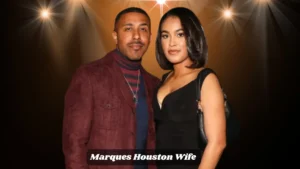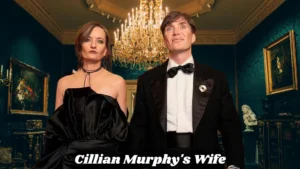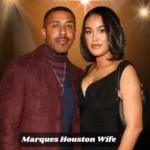War has always been a compelling subject, filled with strategy, history, and conflict. For those who enjoy a mix of challenge and entertainment, war riddles offer a unique way to engage with themes of military history and tactics.
Whether you’re a history buff, a puzzle enthusiast, or just looking for some thought-provoking fun, these riddles will provide plenty of mental stimulation.
Historical Battles 🏰
- What famous battle was fought on June 18, 1815?
Answer: The Battle of Waterloo. - Which war is known for the Battle of Gettysburg?
Answer: The American Civil War. - Which battle marked the turning point in the Pacific Theater of World War II?
Answer: The Battle of Midway. - At which battle did Napoleon Bonaparte meet his final defeat?
Answer: The Battle of Waterloo. - Which battle is considered the largest naval battle in history?
Answer: The Battle of Leyte Gulf. - What battle is known as the “high watermark” of the Confederacy during the American Civil War?
Answer: The Battle of Gettysburg. - Which battle was fought between the British Empire and the Zulu Kingdom in 1879?
Answer: The Battle of Rorke’s Drift. - Which battle was the first major engagement of World War I?
Answer: The Battle of the Marne. - Which battle took place in the city of Stalingrad during World War II?
Answer: The Battle of Stalingrad. - What was the last major battle of World War II in Europe?
Answer: The Battle of Berlin. - Which battle was known as the “D-Day” landing in World War II?
Answer: The Battle of Normandy. - What battle was the site of a famous “Charge of the Light Brigade”?
Answer: The Battle of Balaclava. - Which battle was a decisive conflict during the Napoleonic Wars in 1805?
Answer: The Battle of Austerlitz. - What battle is famous for the “shot heard ’round the world”?
Answer: The Battle of Lexington and Concord. - Which World War II battle took place in the North African desert?
Answer: The Battle of El Alamein. - What battle is considered the turning point of the Korean War?
Answer: The Battle of Inchon. - Which battle was the longest continuous battle of World War I?
Answer: The Battle of Verdun. - What battle was fought between the Romans and the Carthaginians in 216 BC?
Answer: The Battle of Cannae. - Which battle marked the end of the Viking Age?
Answer: The Battle of Stamford Bridge. - What battle was the first major clash between the Allies and the Axis powers in North Africa?
Answer: The Battle of Tobruk. - Which battle was known for the use of “trench warfare” during World War I?
Answer: The Battle of the Somme. - What battle was fought between the British and the French in 1415?
Answer: The Battle of Agincourt. - Which battle was the site of the famous “Rally at Dunkirk”?
Answer: The Battle of Dunkirk. - What battle was the turning point in the Roman-Persian Wars?
Answer: The Battle of Edessa. - Which battle was a significant naval conflict during the American Revolutionary War?
Answer: The Battle of Chesapeake. - What battle is known for the famous “March to the Sea”?
Answer: The Battle of Atlanta. - Which battle was a key victory for the Allies in the Mediterranean during World War II?
Answer: The Battle of Malta. - What battle was a major conflict during the American War of Independence in 1777?
Answer: The Battle of Saratoga. - Which battle was the largest tank battle in history?
Answer: The Battle of Kursk. - What battle marked the end of the Second Punic War?
Answer: The Battle of Zama.
Famous Generals ⚔️
- Who was the British general known for his victory at the Battle of Waterloo?
Answer: Duke of Wellington. - Which American general is famous for his “I shall return” promise during World War II?
Answer: Douglas MacArthur. - Who was the French general known for his role in the Napoleonic Wars?
Answer: Napoleon Bonaparte. - Which German general was known as the “Desert Fox” in World War II?
Answer: Erwin Rommel. - Who was the Roman general known for his military campaigns in Gaul?
Answer: Julius Caesar. - Which Soviet general led the Red Army to victory in the Battle of Stalingrad?
Answer: Georgy Zhukov. - Who was the American general who led the Allied forces in Europe during World War II?
Answer: Dwight D. Eisenhower. - Which British general was known for his campaigns in the Middle East during World War I?
Answer: Edmund Allenby. - Who was the Chinese general who led the forces during the Chinese Civil War?
Answer: Chiang Kai-shek. - Which general is known for his leadership during the Battle of Hastings in 1066?
Answer: William the Conqueror. - Who was the famous Mongol leader known for his conquests across Asia?
Answer: Genghis Khan. - Which American general is known for his role in the Korean War?
Answer: Douglas MacArthur. - Who was the British general who played a crucial role in the defeat of the Spanish Armada?
Answer: Sir Francis Drake. - Which general is known for his military strategy during the Peloponnesian War?
Answer: Pericles. - Who was the Russian general famous for his role in the Napoleonic Wars?
Answer: Mikhail Kutuzov. - Which general was known for his successful campaigns in the French and Indian War?
Answer: James Wolfe. - Who was the American general who played a key role in the Vietnam War?
Answer: William Westmoreland. - Which general is famous for his leadership during the Crusades?
Answer: Richard the Lionheart. - Who was the German general known for his leadership in the Battle of the Bulge?
Answer: Heinrich Himmler. - Which general is renowned for his military tactics during the Hundred Years’ War?
Answer: Joan of Arc. - Who was the Carthaginian general known for his crossing of the Alps?
Answer: Hannibal Barca. - Which general is known for his decisive victories in the American Revolutionary War?
Answer: George Washington. - Who was the British general renowned for his leadership in the Battle of the Somme?
Answer: Douglas Haig. - Which general is known for his campaign to liberate South America from Spanish rule?
Answer: Simón Bolívar. - Who was the French general known for his involvement in the Algerian War of Independence?
Answer: Jacques Massu. - Which general led the Confederate forces during the American Civil War?
Answer: Robert E. Lee. - Who was the famous Viking leader known for his raids across Europe?
Answer: Ragnar Lothbrok. - Which general is known for his role in the Battle of Trafalgar?
Answer: Horatio Nelson. - Who was the famous Byzantine general known for his conquests in the Mediterranean?
Answer: Belisarius. - Which general led the Allied forces in the Battle of the Bulge during World War II?
Answer: Omar Bradley.
Military Tactics 🗡️
- What term describes the military strategy of surrounding an enemy force to cut off supplies and reinforcements?
Answer: Siege Warfare. - Which military tactic involves dividing a larger force into smaller units to avoid direct confrontation?
Answer: Guerrilla Warfare. - What is the term for a military operation aimed at striking the enemy’s supply lines and logistics?
Answer: Strategic Bombing. - What tactic involves a rapid and unexpected attack to surprise the enemy?
Answer: Blitzkrieg. - Which military tactic involves placing troops or equipment in defensive positions to withstand an enemy assault?
Answer: Defensive Positioning. - What is the term for a coordinated attack by multiple military units at once?
Answer: Combined Arms Warfare. - Which tactic involves using deception to mislead the enemy about the location or strength of your forces?
Answer: Feints. - What tactic involves attacking the enemy’s supply lines to weaken their ability to fight?
Answer: Attrition Warfare. - What term describes a sudden and overwhelming attack designed to seize the initiative?
Answer: Offensive Push. - Which military tactic involves the use of small, mobile units to harass and disrupt enemy forces?
Answer: Hit-and-Run Tactics. - What tactic is used to draw the enemy into a vulnerable position before launching a counterattack?
Answer: Luring. - Which tactic involves creating false targets or decoys to mislead the enemy?
Answer: Decoy Operations. - What is the term for the military strategy of using terrain to your advantage in battle?
Answer: Terrain Advantage. - Which tactic involves encircling the enemy to cut off their escape routes?
Answer: Encirclement. - What military tactic involves using high mobility to outflank and surprise the enemy?
Answer: Flanking Maneuvers. - What term describes the strategy of using small, elite units for high-value targets or objectives?
Answer: Special Operations. - Which tactic involves launching a series of coordinated attacks to wear down the enemy’s defenses?
Answer: Attrition Tactics. - What is the term for the use of rapid and coordinated strikes to achieve a specific objective quickly?
Answer: Shock and Awe. - Which tactic involves positioning troops in a way that maximizes their defensive capabilities?
Answer: Defensive Formation. - What term describes the strategy of using deception to mislead the enemy about your true intentions?
Answer: Strategic Deception. - What is the term for a military tactic that involves coordinating attacks across multiple domains (land, sea, air)?
Answer: Multi-Domain Operations. - Which tactic involves using the element of surprise to launch an attack from an unexpected direction?
Answer: Surprise Attack. - What military strategy involves the use of psychological operations to undermine the enemy’s morale?
Answer: PsyOps. - What tactic is used to overwhelm the enemy with a large volume of attacks?
Answer: Saturation Attacks. - Which tactic involves maintaining a high level of mobility to outmaneuver the enemy?
Answer: Maneuver Warfare. - What term describes the strategy of using terrain and weather conditions to your advantage in combat?
Answer: Environmental Advantage. - Which military tactic involves utilizing a combination of air, land, and sea forces in a coordinated manner?
Answer: Joint Operations. - What is the term for the strategy of creating confusion among enemy forces through misinformation?
Answer: Information Warfare. - Which tactic involves maintaining a defensive position while waiting for the enemy to make a move?
Answer: Waiting Game. - What military tactic involves using deception to mask your true operational intentions?
Answer: Operational Deception.
Military History 📜
- Which civilization is known for its legendary warriors and military innovations, including the phalanx formation?
Answer: Ancient Greece. - What empire was known for its extensive road network and military organization that enabled rapid troop movements?
Answer: The Roman Empire. - Which medieval kingdom was famous for its knights and chivalric warfare?
Answer: The Kingdom of England. - What Asian empire was known for its use of cavalry and gunpowder weapons in warfare?
Answer: The Mongol Empire. - Which ancient empire is known for its siege tactics and military engineering achievements, such as the construction of the Great Wall?
Answer: The Chinese Empire. - What empire is known for its military prowess and conquests across the Persian Empire and beyond?
Answer: The Achaemenid Empire. - Which civilization is known for its use of war elephants and naval battles in its conquests?
Answer: The Maurya Empire. - What medieval empire is known for its Islamic military conquests and architectural achievements?
Answer: The Ottoman Empire. - Which empire was known for its powerful navy and military campaigns across the Mediterranean Sea?
Answer: The Phoenician Empire. - What ancient civilization is known for its warlike nature and military strategies in the conquest of Europe?
Answer: The Celts. - Which medieval empire was known for its use of gunpowder weapons and its extensive territorial control in Europe?
Answer: The Habsburg Empire. - What ancient empire is renowned for its military tactics and strategies during the Punic Wars?
Answer: The Roman Republic. - Which empire is known for its use of war chariots and military organization in ancient Mesopotamia?
Answer: The Assyrian Empire. - What empire is renowned for its naval prowess and exploration during the Age of Discovery?
Answer: The Spanish Empire. - Which medieval empire is known for its military campaigns and expansion across Africa?
Answer: The Mali Empire. - What empire is known for its use of the longbow and its military campaigns during the Hundred Years’ War?
Answer: The English Empire. - Which ancient empire is known for its use of phalanx formation and its military achievements in the Mediterranean region?
Answer: The Macedonian Empire. - What ancient civilization is known for its use of war tactics and strategies in its conquest of the Middle East?
Answer: The Hittite Empire. - Which empire is known for its military campaigns and influence across the Indian subcontinent?
Answer: The Gupta Empire. - What medieval empire is renowned for its use of military orders and crusades during the Middle Ages?
Answer: The Crusader States. - Which ancient civilization is known for its use of war elephants and naval warfare in the Mediterranean region?
Answer: The Carthaginian Empire. - What empire is known for its use of cavalry and military campaigns in Central Asia and the Middle East?
Answer: The Seljuk Empire. - Which ancient civilization is renowned for its military tactics and naval supremacy in the Aegean Sea?
Answer: The Minoan Civilization. - What medieval empire is known for its military strategies and influence in Eastern Europe?
Answer: The Byzantine Empire. - Which empire is known for its use of war tactics and strategies in the conquest of South America?
Answer: The Inca Empire. - What ancient civilization is known for its use of military fortifications and siege warfare in the Near East?
Answer: The Babylonian Empire. - Which empire is known for its extensive use of naval power and military conquests in the Indian Ocean region?
Answer: The Portuguese Empire. - What ancient civilization is renowned for its military tactics and strategies in the conquest of the British Isles?
Answer: The Roman Empire. - Which empire is known for its military campaigns and influence across the northern regions of Europe?
Answer: The Viking Empire. - What medieval empire is known for its military strategies and campaigns during the Reconquista?
Answer: The Kingdom of Spain.
Weapons and Technology 🔫
- What is the name of the medieval weapon known for its long-range capabilities and use in sieges?
Answer: The Trebuchet. - Which firearm, invented in the 19th century, revolutionized infantry tactics with its rapid firing rate?
Answer: The Machine Gun. - What term describes a type of armored vehicle used for direct combat on the battlefield?
Answer: Tank. - Which weapon was commonly used in ancient times for both throwing and close combat?
Answer: The Spear. - What is the name of the explosive device used to breach fortifications or create destruction over a wide area?
Answer: The Bomb. - Which ancient weapon was used in naval warfare and involved firing large projectiles at enemy ships?
Answer: The Catapult. - What term describes a small, handheld weapon designed for close combat and personal defense?
Answer: The Pistol. - Which type of warfare technology involves the use of satellites for communication and navigation?
Answer: Satellite Technology. - What is the name of the high-powered rifle used by snipers for precision shooting?
Answer: The Sniper Rifle. - Which weapon was used by cavalry units in medieval times for both offense and defense?
Answer: The Saber. - What is the term for the protective gear worn by soldiers to shield against bullets and shrapnel?
Answer: Body Armor. - Which modern military technology involves the use of drones for reconnaissance and targeted strikes?
Answer: Unmanned Aerial Vehicles (UAVs). - What is the name of the large-caliber artillery piece used in World War I and II for long-range bombardment?
Answer: The Howitzer. - Which weapon was used during the American Civil War and is known for its rifled barrel and accuracy?
Answer: The Rifle. - What term describes the use of electronic devices to disrupt or jam enemy communications?
Answer: Electronic Warfare. - Which naval weapon is designed to launch projectiles from a ship or submarine?
Answer: The Torpedo. - What is the name of the explosive device that can be used to clear mines or obstacles?
Answer: The Landmine. - Which ancient siege weapon was used to break through walls or gates?
Answer: The Ram. - What term describes the use of chemical agents to inflict harm on enemy forces?
Answer: Chemical Warfare. - Which weapon system uses guided missiles to intercept and destroy incoming threats?
Answer: Missile Defense System. - What is the name of the powerful projectile weapon used in ancient warfare, known for its long-range accuracy?
Answer: The Longbow. - Which technology is used to enhance the precision of artillery and missile systems?
Answer: GPS Guidance. - What is the term for the handheld weapon designed for both offense and defense in close combat situations?
Answer: The Sword. - Which weapon system is used for launching rockets or missiles from the ground or air?
Answer: Rocket Launcher. - What is the name of the protective gear worn on the head to shield against injury?
Answer: The Helmet. - Which type of weaponry involves the use of lasers for targeting and defense?
Answer: Laser Weapons. - What term describes the technology used to enhance the range and accuracy of firearms?
Answer: Optics. - Which ancient weapon was used to hurl large stones or other projectiles over long distances?
Answer: The Ballista. - What is the name of the explosive device used to create craters or clear obstacles in military operations?
Answer: The Explosive Charge. - Which modern technology involves the use of advanced materials to improve the performance and durability of military equipment?
Answer: Composite Materials.
Military Strategy and Leadership 🧠
- What term describes the overarching plan or set of goals that guides a military operation?
Answer: Strategy. - Which military leader is known for his concept of “total war,” where the entire society is mobilized for conflict?
Answer: William Tecumseh Sherman. - What term describes the careful planning and coordination of military forces to achieve a specific objective?
Answer: Tactical Planning. - Which military leader is renowned for his strategy of encircling and cutting off enemy forces?
Answer: Hannibal Barca. - What term describes the use of deception and misinformation to mislead the enemy about one’s true intentions?
Answer: Strategic Deception. - Which military concept involves the use of surprise and speed to overwhelm the enemy?
Answer: Blitzkrieg. - What is the term for the methodical and deliberate approach to military planning and execution?
Answer: Operational Art. - Which leader is known for his focus on discipline and training to create a highly effective fighting force?
Answer: Frederick the Great. - What term describes the use of psychological tactics to influence the morale and behavior of enemy forces?
Answer: Psychological Warfare. - Which military strategy involves using multiple types of forces (land, sea, air) in a coordinated effort?
Answer: Combined Arms Warfare. - What is the term for the strategy of using limited resources to achieve maximum impact against a stronger enemy?
Answer: Asymmetric Warfare. - Which military leader is famous for his use of the “scorched earth” tactic during his campaigns?
Answer: General Kutuzov. - What term describes the approach of focusing on the enemy’s weakest points to achieve victory?
Answer: Exploiting Weaknesses. - Which strategy involves using a series of coordinated attacks to gradually wear down the enemy’s defenses?
Answer: Attrition Warfare. - What is the term for the use of military deception to create confusion and uncertainty among enemy forces?
Answer: Deceptive Operations. - Which military leader is known for his concept of “maneuver warfare,” emphasizing flexibility and speed?
Answer: Erwin Rommel. - What term describes the strategic use of defensive positions to repel enemy attacks and protect key locations?
Answer: Defensive Strategy. - Which leader is famous for his use of “shock and awe” tactics to achieve rapid victories?
Answer: General Tommy Franks. - What is the term for the strategy of creating multiple fronts or areas of attack to stretch the enemy’s resources?
Answer: Multi-Front Warfare. - Which military leader is known for his emphasis on the use of mobility and surprise in his campaigns?
Answer: Napoleon Bonaparte. - What term describes the concept of maintaining flexibility in military operations to adapt to changing circumstances?
Answer: Operational Flexibility. - Which military leader is renowned for his use of siege tactics and psychological pressure to achieve victory?
Answer: Genghis Khan. - What is the term for the strategy of using reconnaissance and intelligence to gain an advantage over the enemy?
Answer: Intelligence Gathering. - Which military leader is known for his use of “strategic withdrawals” to reposition and counterattack effectively?
Answer: General Lee. - What term describes the use of military force to achieve political objectives and influence?
Answer: Political Warfare. - Which leader is famous for his use of naval blockades to disrupt enemy trade and supply lines?
Answer: Admiral Nelson. - What is the term for the strategic approach of using limited force to achieve specific, high-impact goals?
Answer: Precision Warfare. - Which military leader is known for his innovative tactics and emphasis on leadership during the Napoleonic Wars?
Answer: Napoleon Bonaparte. - What term describes the practice of adapting military tactics based on the lessons learned from previous conflicts?
Answer: Adaptive Strategy. - Which military leader is renowned for his use of unconventional tactics and guerilla warfare?
Answer: Che Guevara.
War Literature and Art 📚
- Which novel by Erich Maria Remarque explores the horrors of World War I through the eyes of a German soldier?
Answer: All Quiet on the Western Front. - What famous poem by Wilfred Owen depicts the harsh realities of trench warfare during World War I?
Answer: Dulce et Decorum Est. - Which epic poem by Homer recounts the events of the Trojan War?
Answer: The Iliad. - What novel by Michael Shaara portrays the Battle of Gettysburg from multiple perspectives?
Answer: The Killer Angels. - Which classic novel by Joseph Heller satirizes the absurdities of war and military bureaucracy?
Answer: Catch-22. - What is the title of the Pulitzer Prize-winning novel by Tim O’Brien that depicts the Vietnam War?
Answer: The Things They Carried. - Which book by Victor Hugo is set during the Napoleonic Wars and features themes of redemption and social justice?
Answer: Les Misérables. - What historical novel by Ken Follett explores the impact of World War II on a Welsh family?
Answer: Fall of Giants. - Which novel by Ernest Hemingway explores the Spanish Civil War and its effects on a group of American volunteers?
Answer: For Whom the Bell Tolls. - What work by John Steinbeck examines the experiences of American soldiers during World War II?
Answer: The Moon is Down. - Which novel by Robert Graves is an autobiographical account of World War I?
Answer: Goodbye to All That. - What classic poem by T.S. Eliot reflects on the impact of war on the modern world?
Answer: The Waste Land. - Which novel by Leon Uris portrays the Israeli struggle for independence and the impact of war on its people?
Answer: Exodus. - What book by William Faulkner explores the effects of war on a Southern family during World War I?
Answer: The Sound and the Fury. - Which novel by John le Carré delves into the world of espionage and intelligence during the Cold War?
Answer: The Spy Who Came in from the Cold. - What historical novel by James Jones depicts the experiences of American soldiers during the Pacific Theater of World War II?
Answer: The Thin Red Line. - Which poem by Rupert Brooke reflects on the idealism of war and sacrifice?
Answer: The Soldier. - What novel by Sebastian Faulks follows a British soldier’s experiences in World War I and its aftermath?
Answer: Birdsong. - Which work by Homer tells the story of the Greek hero Odysseus and his journey home from the Trojan War?
Answer: The Odyssey. - What novel by Michael Ondaatje is set during the Sri Lankan Civil War and explores the impact of conflict on individuals?
Answer: The English Patient. - Which novel by Ian McEwan explores the effects of World War II on a young girl’s life and her family?
Answer: Atonement. - What memoir by Mary Ann Shaffer and Annie Barrows is set during World War II and depicts life in occupied Guernsey?
Answer: The Guernsey Literary and Potato Peel Pie Society. - Which novel by Erich Maria Remarque depicts the impact of war on soldiers and their return to civilian life?
Answer: The Road Back. - What historical novel by Bernard Cornwell follows the exploits of a Saxon warrior during the Viking invasions?
Answer: The Last Kingdom. - Which classic novel by John Steinbeck portrays the impact of World War II on the American home front?
Answer: The Grapes of Wrath. - What poem by John McCrae commemorates the sacrifice of soldiers during World War I?
Answer: In Flanders Fields. - Which novel by Graham Greene explores the impact of war on a missionary in Vietnam?
Answer: The Quiet American. - What work by J.R.R. Tolkien is set in a fantasy world inspired by real-life war experiences?
Answer: The Lord of the Rings. - Which novel by Charles Dickens explores the social and political upheavals of the French Revolution?
Answer: A Tale of Two Cities. - What memoir by Tim O’Brien explores the emotional and psychological effects of the Vietnam War on soldiers?
Answer: If I Die in a Combat Zone.

Justin Taylor is a puzzle enthusiast and connoisseur, dedicated to exploring the fascinating world of puzzles. With a knack for solving complex riddles and a deep understanding of puzzle mechanics, Justin’s contributions to Puzzlerpedia are both enlightening and entertaining, captivating readers of all skill levels.










